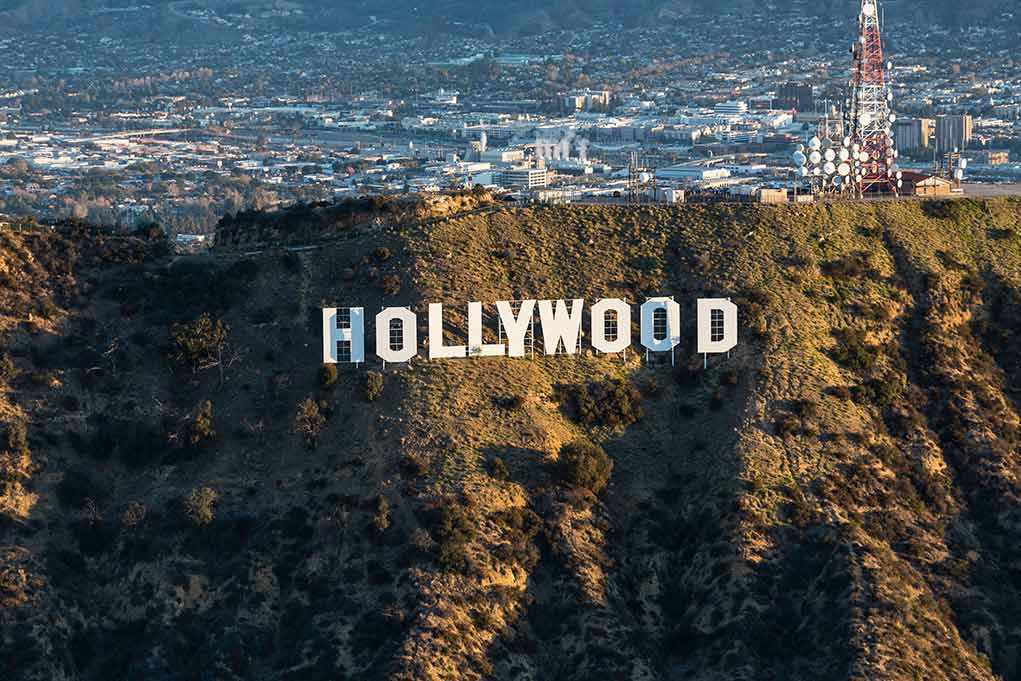
Hollywood has once again landed in the hot seat as a resurfaced video of Anthony Anderson making a questionable remark to a teenage Lindsay Lohan reignites public outrage over the deep-seated culture of abuse and unchecked power in the entertainment industry.
At a Glance
- Resurfaced clip of Anthony Anderson telling a teen Lindsay Lohan he “likes them young” spotlights Hollywood’s history of predatory power plays.
- Decades of allegations reveal a pattern of abuse, cover-ups, and career retaliation against accusers in the film industry.
- The #MeToo movement forced long-overdue public scrutiny and some reforms, but institutional rot persists.
- Industry gatekeepers and celebrity enablers still wield outsized influence, leaving justice for many victims elusive.
The Hollywood Problem: A Culture of Abuse, Not Accountability
History books and news archives are littered with examples of Hollywood’s moral bankruptcy, where predators flourished and victims—often young, vulnerable women—were left to fend for themselves. The notorious “casting couch” was never a myth. It was a sick, open secret. From the 1937 assault of Patricia Douglas at an MGM party to the career-ending blacklists for those who dared speak out, the film industry has repeatedly shown that protecting its own power brokers takes precedence over justice or decency. Victims faced not just disbelief, but ruthless retaliation, blacklisting, and legal intimidation. So when a clip like this resurfaces—Anthony Anderson, grown man, telling a teenage Lindsay Lohan he “likes them young”—it’s not an isolated incident. It’s business as usual in a land built on exploiting the desperate dreams of the powerless.
These abuses were enabled by a few powerful gatekeepers—studio executives, producers, and agents—who had unchecked control over who made it and who was ruined. For decades, they shielded their own through hush money, non-disclosure agreements, and intimidating victims into silence. The occasional “apology tour” or slap on the wrist never changed the underlying culture, because the power structure never changed. The predators didn’t just escape justice. They thrived, grew rich, and were honored at industry galas while their victims disappeared from the spotlight, often left emotionally and financially devastated.
#MeToo: Public Uproar and Piecemeal Reform
The 2017 downfall of Harvey Weinstein was supposed to mark a turning point. It did force Hollywood to take a long, hard look in the mirror, with the #MeToo movement sparking global outrage and a parade of accusations against big names: Bill Cosby, Kevin Spacey, Louis C.K., Matt Lauer. High-profile trials, tearful survivor testimony, and wall-to-wall media coverage followed. Reforms were promised. New policies drafted. Studios and networks issued statements swearing they’d never let it happen again. But here’s the reality: while some progress has been made, the core rot remains. Gatekeepers still hold the keys, and the industry still protects its cash cows and rainmakers whenever possible. Non-disclosure agreements, hush money, and legal threats continue to keep much of the abuse under wraps. For every Weinstein brought to justice, countless others skate by, shielded by money, connections, or a new PR team.
Survivors, especially women and minorities, still struggle to be believed or to find work if they speak out. The entrenched power dynamics haven’t budged much, and reforms have been slow, piecemeal, and largely cosmetic. The message from Hollywood remains: your trauma is less important than our profits and our image. It’s a far cry from the accountability and transparency that everyday Americans expect—and demand—from any institution, let alone one that shapes so much of our culture.
The Fallout: Broken Trust, Lasting Damage, and a Rigged System
The ripple effects of Hollywood’s abuse crisis go far beyond the red carpet. Studios have lost millions to lawsuits, settlements, and bad press, but the real cost is borne by the survivors and by the public’s shattered trust. Families across America look at these stories and wonder how a country built on accountability and justice allows such corruption to thrive. It’s the same frustration we see with government overreach, the endless subsidizing of the irresponsible, and the erosion of core values by elites who play by their own rules. The entertainment industry’s empty promises of reform mirror the phony accountability we see in so many institutions that have lost touch with common sense and decency.
Despite some high-profile convictions and firings, many victims are still waiting for justice, while abusers find new ways to reinvent themselves or quietly retire with their fortunes intact. The broader lesson is clear: when you concentrate power in the hands of a few, shield them from consequences, and silence anyone who speaks out, you create a breeding ground for abuse. If Hollywood wants real change, it needs to tear down its broken structures—not just slap a new coat of paint on the same crumbling walls. Until that happens, more videos will resurface, more survivors will speak out, and the public’s patience with elite hypocrisy will only wear thinner.
Sources:
Sexual abuse in the American film industry (Wikipedia)
The #MeToo Movement: A Timeline (Refinery29)
From Weinstein to Kavanaugh: Timeline of high-profile sexual harassment cases (AJC)
From Weinstein to Lauer: Timeline of 2017 sexual harassment scandals (AJC)




